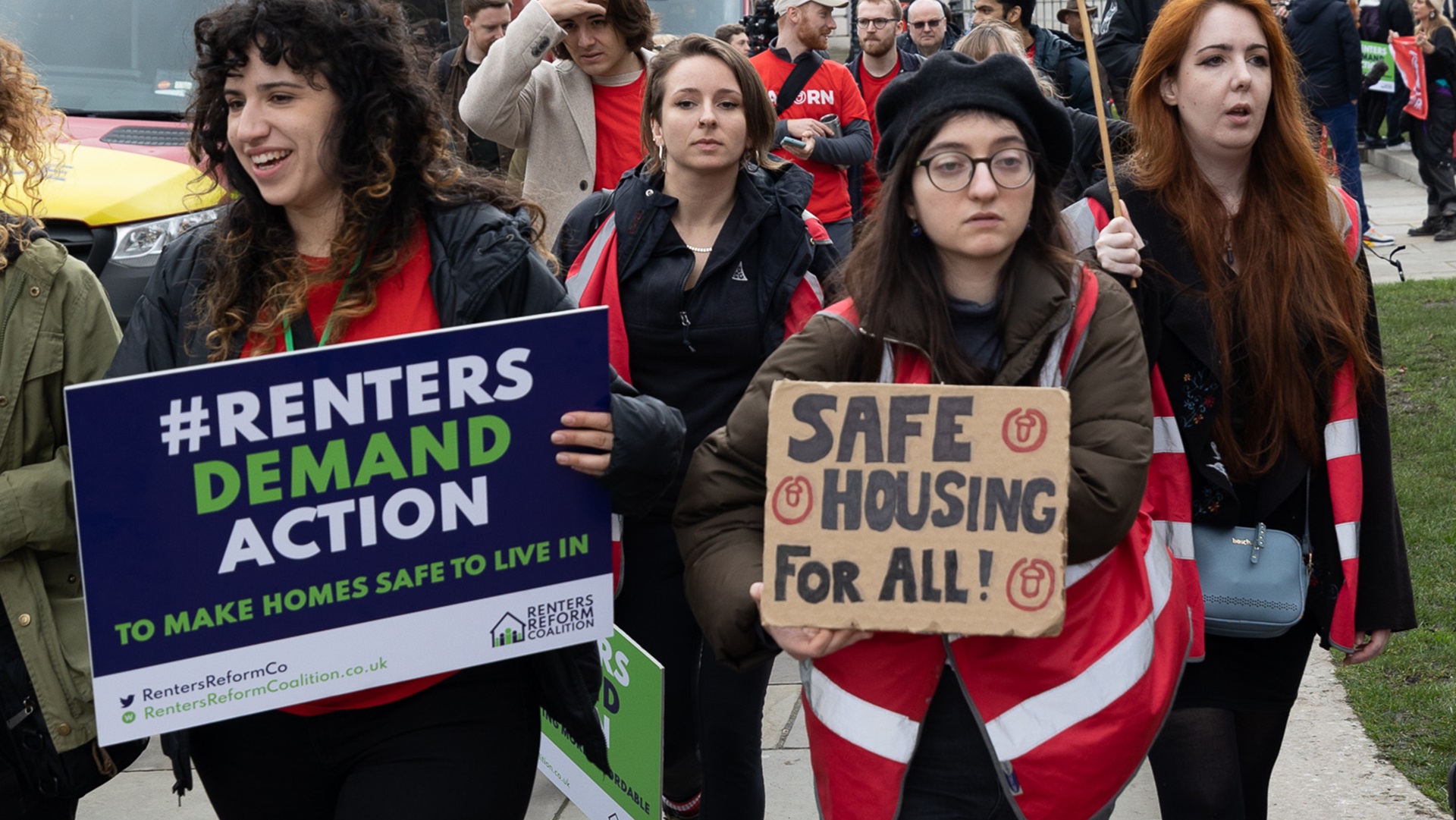“It will empower renters by providing them with greater security, rights and protection and they can stay in their homes for longer, build lives in their communities and avoid the risk of homelessness.
“It will ensure that we can drive up the quality of private rented housing so that renters have access to good quality and safe homes as a matter of course and it will allow us to crackdown on the minority of unscrupulous landlords.”
The Renters’ Rights Bill will become the Renters’ Rights Act once it receives royal assent in the coming weeks. Some measures will come into force immediately when the bill becomes law.
Pennycook said there will be an implementation period for other measures with the government “balancing the need to act quickly while ensuring the sector has time to adjust”.
Following the debate, the Renters Reform Coalition posted: “No more amendments, no more debate –renters’ rights are coming,” as it marked the culmination of a six-year campaign to change the law and tip the power balance between renters and landlords.
It was back on 15 April 2019 when former prime minister May said she would scrap no-fault evictions.
Advertising helps fund Big Issue’s mission to end poverty
That was the same day as the devastating fire at Notre Dame’s iconic cathedral. The building was rebuilt and reopened almost a year ago.
But many groups who have called for the bill to change lives are hailing the latest milestone.
Owen Sharp, chief executive of Dogs Trust, said: “These new pet-friendly renters’ rights mean that the benefits of pet ownership are no longer exclusive to homeowners, something we have been campaigning on for many years. It is a game-changer for pet-loving tenants.
“While there’s no doubt this is a massive step forward in improving the availability of pet friendly accommodation, there is still more to be done. Sadly, one of the most common reasons we see dogs handed in to our rehoming centres is a change in the owner’s living circumstances and a lack of available pet-friendly accommodation.
“We urge the government to work with the private and social rental sectors to increase confidence in renting to pet owners so that they are not disadvantaged when seeking to access suitable accommodation.”
Read more:
Advertising helps fund Big Issue’s mission to end poverty
William Reeve, CEO at lettings platform Goodlord, said he expects that some changes, such as the abolition of section 21 no-fault evictions and the shift to periodic tenancies rather than fixed-term, to come into force between April and June next year.
He added that the creation of a new private rented sector ombudsman and the introduction of the decent homes standard have less clear-cut timelines.
“After too many false starts to count, the deed is done. Three and a half years after it was first mentioned in a Queen’s Speech, this seminal piece of legislation is now finally winging its way onto the statute books,” said Reeve.
“This gives agents and landlords a small window in which to get their house in order. It’s absolutely essential that anyone with their head still in the sand about the legislation pulls it out sharpish. This legislation is real, vast and can no longer be ignored.”
But the bill will still face challenges in making rent more affordable.
The bill cleared its final hurdle on the same day that it was revealed that the inflation rate remained at 3.8% but Office for National Statistics figures showed private rents across the UK rose by 5.5% in the year up to September 2025 to a new record-high £1,354 a month.
Advertising helps fund Big Issue’s mission to end poverty
With limited measures dealing with affordability in the bill and Pennycook rejecting Jeremy Corbyn’s call for rent controls in the Commons debate, the government will now face pressure to unfreeze local housing allowance rates to help low-income renters at next month’s autumn budget.
Do you have a story to tell or opinions to share about this? Get in touch and tell us more.
Reader-funded since 1991 – Big Issue brings you trustworthy journalism that drives real change.
Every day, our journalists dig deeper, speaking up for those society overlooks.
Could you help us keep doing this vital work? Support our journalism from £5 a month.









